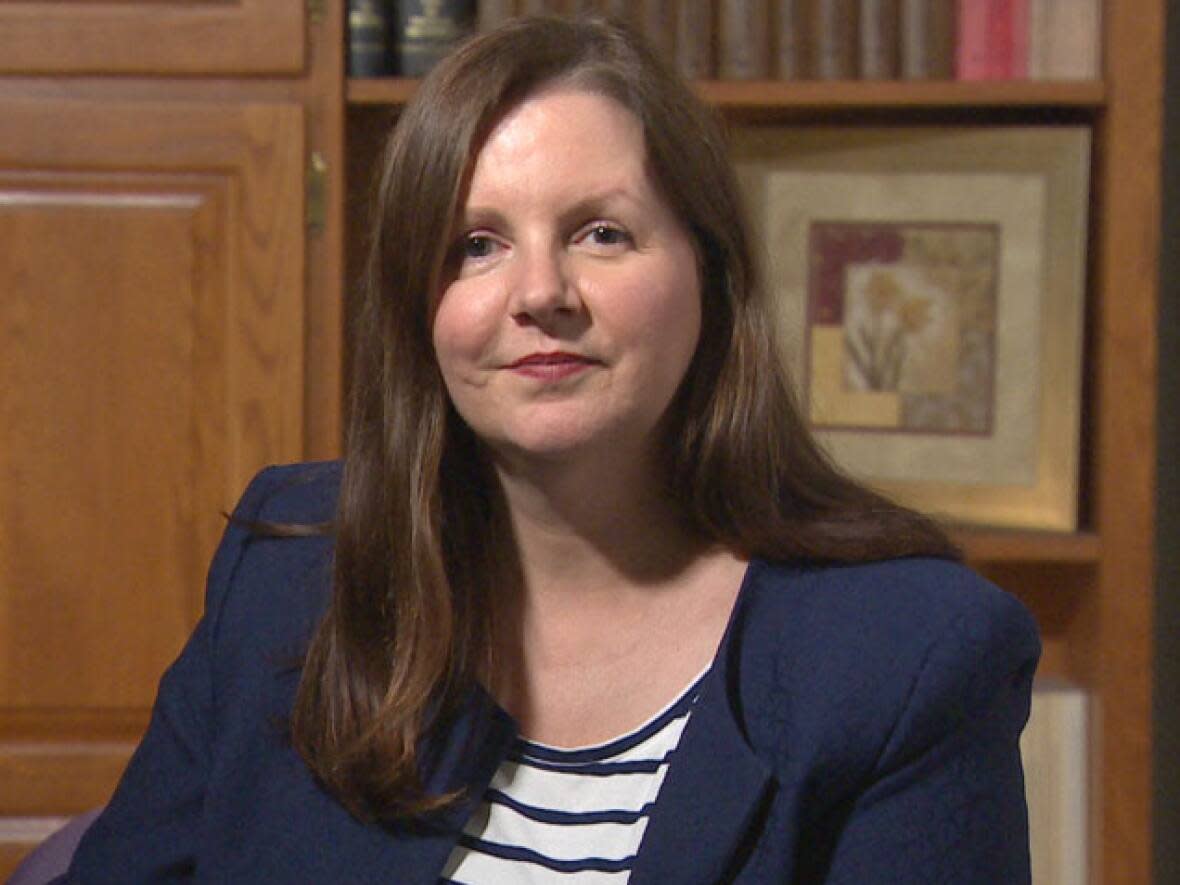WHO's downgrade of COVID-19 pandemic 'aligned with' N.B. approach, says top doctor

New Brunswick's chief medical officer of health welcomed the World Health Organization's declaration Friday that the COVID-19 pandemic no longer qualifies as a "global health emergency," but says no changes in COVID reporting, services or advice are planned for the province.
In a statement, Dr. Jennifer Russell noted New Brunswick already recently took "steps to adjust its reporting processes and testing strategies" in response to its "changing situation."
The province cut back its COVID-19 updates to monthly instead of weekly, as of this week, and has restricted PCR (polymerase chain reaction) lab tests to people with symptoms who have a referral from a health-care provider.
"The declaration made by the WHO is certainly aligned with our evolving approach," said Russell.
"However, it's important to remember that while the emergency may be over, COVID-19 is still circulating in our communities and is still a significant health risk to many New Brunswickers, especially those who are immunocompromised."
Still a global threat
The pandemic, which was declared an international crisis by WHO on Jan. 30, 2020, is now considered "an established and ongoing health issue." The United Nations' health agency cited increased immunity, fewer deaths and less pressure on hospitals.
"That does not mean COVID-19 is over as a global health threat," noted WHO Director-General Tedros Adhanom Ghebreyesus. "Last week, COVID-19 claimed a life every three minutes — and that's just the deaths we know about.
"As we speak, thousands of people around the world are fighting for their lives in intensive care units. And millions more continue to live with the debilitating effects of post-COVID-19 condition."
Premier seeks provincial declaration
Premier Blaine Higgs called the downgraded status "good news."
"The World Health Organization has basically said, 'OK, we think that we're beyond it now,'" he told reporters Friday.
Asked whether the province would declare COVID endemic now, or "just kind of just stop talking about it and hope it goes away," Higgs initially responded tongue-in-cheek with, "The last suggestion might be appropriate."
He then said he would look to Public Health officials to "make a declaration based on New Brunswick."
"I'll be interested in our Public Health's reaction to that and how that will reflect what we report and how we move forward."

Russell did not respond to questions from CBC about if or when Public Health might issue a declaration specific to the province.
She described WHO's announcement "an important moment in the global response to the novel coronavirus." It "signifies another important step in the evolution of the COVID-19," she said.
Will continue to monitor
Still, Public Health officials will continue to monitor the spread of COVID-19 within New Brunswick through wastewater surveillance and through the genetic sequencing of positive test results, Russell said.
The province recorded four more COVID deaths in Tuesday's final weekly COVIDWatch report, raising the province's pandemic death toll to 883. That's more than one death for every 1,000 New Brunswickers.
Numbers 'relatively stable or declining'
"Although the number of deaths, hospitalizations and positive cases have been relatively stable or declining since January, we encourage New Brunswickers to remain up-to-date with their vaccines and to assess their own risk levels when considering what precautions they should use in their day-to-day activities," Russell said.
As of mid-April, only about 13 per cent of New Brunswickers aged five and older have received a COVID-19 vaccine booster dose in the past five months.

New Brunswickers aged five and older who received a booster dose in the fall are considered up-to-date and are not currently eligible for an additional dose.
The province's spring booster campaign is "primarily focused on" people most at risk for severe illness, including seniors and the immunocompromised, "as per the recommendations from the National Advisory Committee on Immunizations (NACI)," Department of Health spokesperson Sean Hatchard has said.
Booster doses are available by appointment at community pharmacies across the province until the end of June.
New Brunswick dropped all COVID protective measures, such as mandatory isolation, gathering limits and indoor masking, more than a year ago, on March 14, 2022. It has not held a public COVID-19 update since Feb. 24, 2022.


